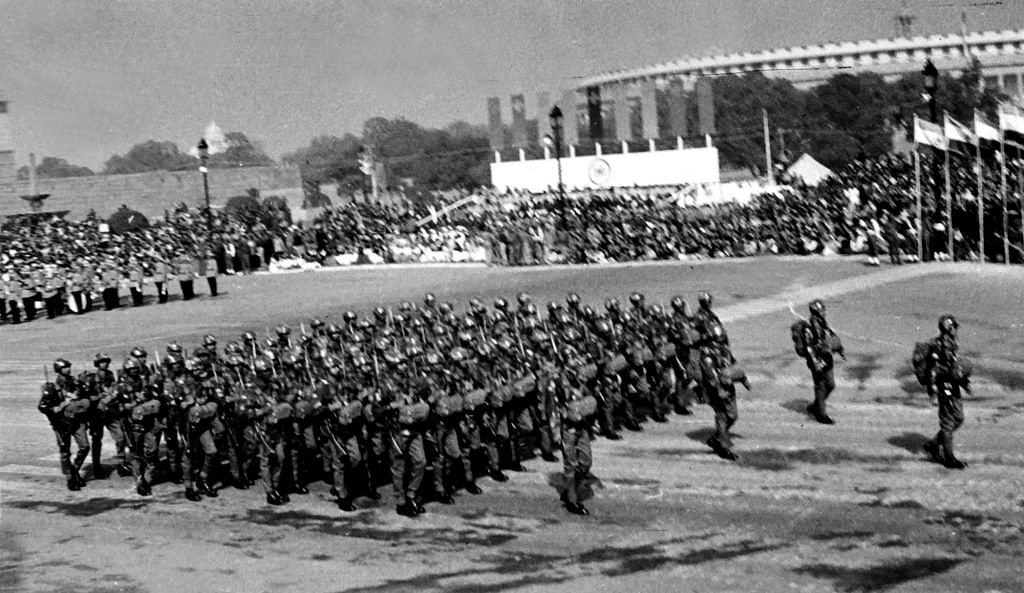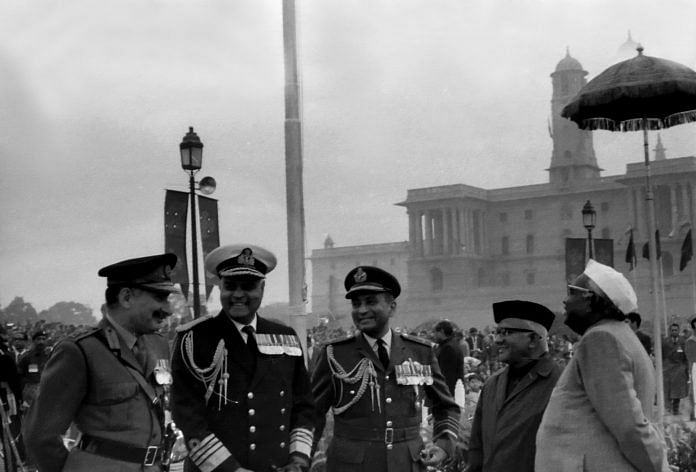Former defence minister Jagjivan Ram also wrote to then Army chief Manekshaw on caste-based quota policy.
A call by union minister Ramdas Athawale for caste-based reservations in the armed forces that he promised to take up with Prime Minister Narendra Modi has re-ignited a debate as old as the Indian Army itself.
Athawale, minister of state for social justice, told ANI that he is in favour of a quota for Scheduled Tribes (ST) and Scheduled Castes (SC) in the Army, along the lines of reservations in education and other government jobs.
While the demand has led to a debate and uproar within the veteran community, the call itself by a politician is not new. The strongest case made perhaps was in 1972 when then defence minister Jagjivan Ram wrote to Army chief Gen. Sam Manekshaw, asking why 15% of SC reservations and 7.5% of SC quota were not being implemented.
As recorded in Steven Wilkinson’s ‘Army and Nation: The Military and Indian democracy since Independence’, Manekshaw asked Brig. (later Lt. Gen.) S.K. Sinha to respond to the strong note by the defence minister.

“As far as ranks below officers were concerned, we have more than 15% of Scheduled Castes already in the Army. We have the Mahar regiment, and every battalion has 75-100 depressed classes as sweepers, cobblers, dhobis, etc. In terms of officers, we had hardly any SCs in 1947, but we are making progress and now have 1% and will grow further,” Gen. Sinha is quoted as saying in an interview, recalling the events of 1972, months after India had won a decisive war with Pakistan that led to the creation of Bangladesh.
From the legal standpoint, reservations in the armed forces have already been decided against, according to Major Navdeep Singh, an expert in military law. “I personally feel that the military should remain beyond the scope of reservation in order to preserve its merit-based and laical character. Besides this, the Supreme Court in the landmark Constitution Bench decision in Indra Sawhney’s case had also endorsed the non-applicability of reservation to the defence services,” Maj. Singh told ThePrint.
The Army organised by the British, however, was caste-based and had a built-in ‘reservation’ of sorts that recruited from the martial races and ignored the less privileged. This, however, was reversed as the world wars loomed and a demand for soldiers increased. In his book, ‘India’s war: The making of modern South Asia’ (1939-1945), Srinath Raghavan records how the British started recruiting soldiers from SC and ST communities in a departure from earlier policy due to shortages.
Stephen Cohen has also gone deep into the issue in his 1969 paper, “The Untouchable Soldier: Caste, Politics, and the Indian Army”, in the ‘Journal of Asian Studies’, which records the history of the caste system within the Army, including the end to recruitment from the less privileged classes into the Bengal Army after the 1857 mutiny.
A majority view from the veteran community, however, is simple — ‘don’t fix what isn’t broken’. Prominent defence analyst Brigadier Gurmeet Kanwal said, “The recruitment system in the Army has functioned well and any tinkering with it for reservations on any ground whatsoever will be counterproductive.”



